Seeing animals as individuals is key to their welfare
05 September 2014

Senior Animal Welfare Officer Xin Pei, reflects on the importance of knowledge, education and awareness in his personal journey to understanding the needs of animals and the honour it has been to share it working for Animals Asia in China.
When I was a high school student, I failed an injured sparrow.
When the bird allowed me to pick it up, I was amazed by the trust between species. I put her gently in a paper box for further treatment after class.
However, she did not make it through the afternoon.
Ten years later, as I was watching the funeral of an Asiatic black bear, who had suffered years of barbaric bile farming before being rescued by Animals Asia, I remembered the moment when I dug a hole and buried that tiny creature.
Embarrassed to admit, I realized that maybe my "help" had actually killed that little bird. My compassion initiated my rescue, but I had no idea how to provide enough food, water, space and comfort for her to recover. Even worse, she might not have been injured at all but was perhaps just learning to fly. The last few hours of her life must have been tough, full of desperation and stress, which I never wished.
Before I worked for Animals Asia, I couldn't understand this. As an environmentalist, I tended to think of the big picture of an ecosystem, but sometimes overlooked the lives of individuals. For the sake of an individual life, no matter human or animal, it is essential to respect their basic physical and psychological needs. That respect is not only a sense of love, but also about understanding animals as individuals.
However, what we think of as helping, or even as love, doesn't always benefit the animal. Take these examples:
- We pity street dogs, so we rescue them and take them to shelters, which are probably already over-filled with their companions, and lack the capacity to meet the basic needs of space to move, food or treatment
- We love our companion dogs as family members, so we share our snacks with them, dress them up in clothes and dye their hair
- We wish to have close contact with wildlife, so we ride elephants on field trips
- We rescue an exotic turtle from an Asian food market, then immediately release it into a local lake, potentially ruining the local ecosystem.
Ironically, we often do the "right thing" for our conscience, but the "wrong thing" for the animals and the environment.
It was the same situation in the case of my attempt to rescue the sparrow. If I had known the best solution for rescuing a dropped young bird was to leave her on the ground close to the nest, I would never have "captured" her in a small box.
To understand the science of animals is one of the keys to providing a better solution. It doesn't matter if it's for farm or companion animals, or those in the wild, the essential action plans to provide the best care should embrace the concept of animal welfare science, including properly learning the animals' needs, behaviors, and psychologies, as well as veterinary medicine.
This is the principle of my work in the Animal Welfare Department of Animals Asia.
We have close contact with international experts in the fields of animal management, environmental enrichment, animal behavior training and veterinary medicine. In co-operation with the China Association of Zoological Gardens, we have brought that knowledge to various Chinese zoos and safari parks to run workshops and training programs.
This knowledge isn't only being practiced in zoos, but is being transferred to the general public.
My presentations in schools and universities always start with the concept of learning animal sentience, animal needs and animal welfare.
Beyond the working experiences of animal lovers and experts, the general public in China has proven that their awareness of animal cruelty is on the rise and has shown huge enthusiasm to make a difference.
Since 2009, Animals Asia has worked to expose the cruel truth of animal performance and end the industry. I am increasingly encouraged by the wide range of public participation in our campaigns.
Our "Not Born to Perform" online poster design competition generated over 2,000 submissions and over 10,000 online votes. Those talented designers expressed their opposition to the unnecessary industry, and their work has been widely spread in urban public spaces, schools and university campuses including Beijing Zoo.
Our exposure of animal cruelty issues and animal protection achievements are widely re-shared via Weibo (China's equivalent of Twitter) and even though many travelling circuses continue in China, I believe our work will eventually have enough impact to end the declining industry of animal performance.
Born an animal lover, it is a pleasure for me to be able to continue learning and advancing my knowledge on issues of animal cruelty and welfare – knowledge which I can pass on around China and the world.
BACK
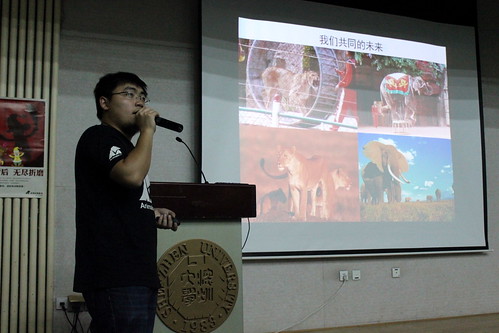
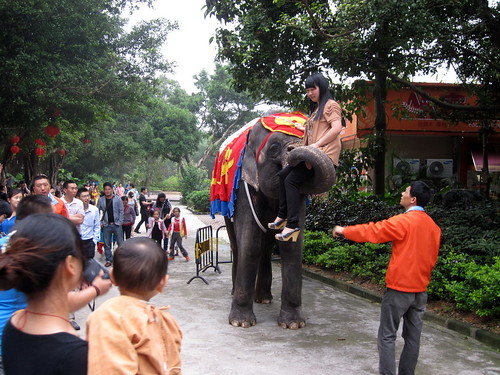
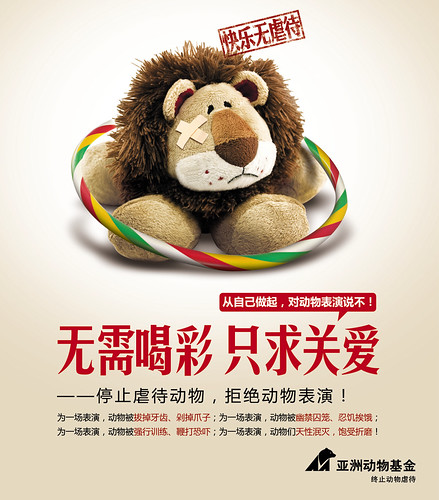
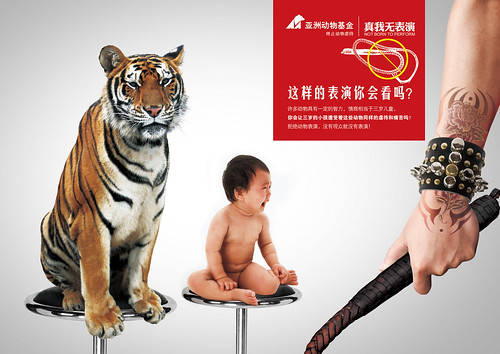




 5 reasons the dog meat trade must end
5 reasons the dog meat trade must end
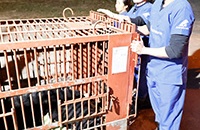 New year, new home for Christmas the Bear!
New year, new home for Christmas the Bear!
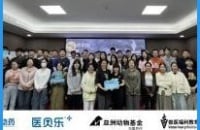 Veterinary welfare training – pain management
Veterinary welfare training – pain management